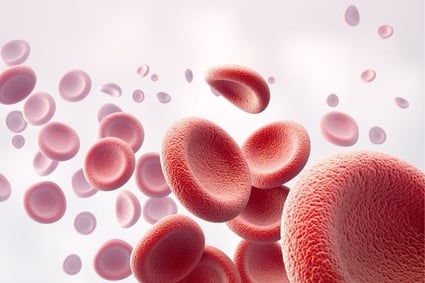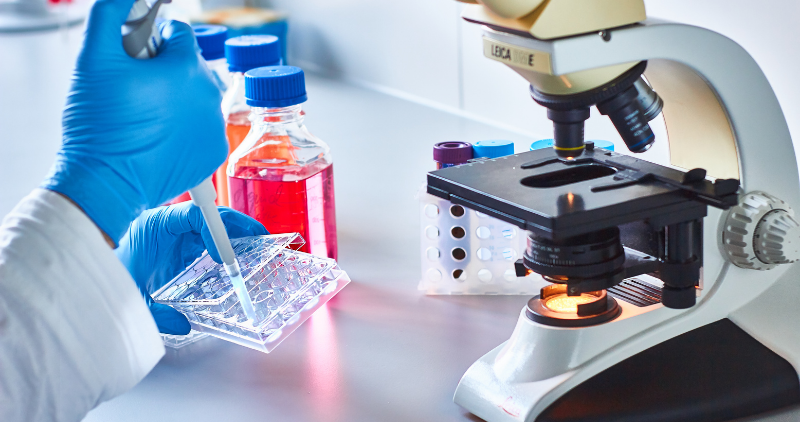Treating Blood Cancers in Portland-Vancouver
 Your blood is living tissue made up of liquid and solids. The liquid part, called plasma, is made of water, salts, and protein. Over half of your blood is plasma. The solid part of your blood contains red blood cells, white blood cells, and platelets.
Your blood is living tissue made up of liquid and solids. The liquid part, called plasma, is made of water, salts, and protein. Over half of your blood is plasma. The solid part of your blood contains red blood cells, white blood cells, and platelets.
Red blood cells deliver oxygen from your lungs to your tissues and organs. White blood cells fight infection and are part of your body's defense system. Platelets help the blood clot. Bone marrow, the spongy material inside your bones, makes new blood cells. Blood cells constantly die, and your body makes new ones. Red blood cells live about 120 days, platelets six days, and white cells less than one day.
What are Blood Cancers?
Blood cancers, also referred to as hematologic cancers, usually start in the bone marrow, which is where blood is made. Blood cancers develop when abnormal blood cells begin to grow out of control and interrupt the function of normal blood cells, which fight off infection and produce new blood cells. Each type of blood cancer affects different aspects of the cells in blood.
Take a look at the information here to understand a particular blood cancer or condition. Then, when you’re ready, click the button to make an appointment with one of our hematologists.
Types of blood cancers include:
Leukemia
Leukemia is cancer that starts in the tissues that form the blood. The different types of leukemia can be grouped based on how quickly the disease grows and advances. Leukemia can either be chronic, which typically progresses slowly, or acute, which usually progresses quickly.
Non-Hodgkin’s Lymphoma
Non-Hodgkin’s lymphoma begins when a lymphocyte or white blood cell of the lymphatic system becomes abnormal and makes more abnormal cells. Since abnormal cells don't die nor function normally, they are unable to protect the body from infections or diseases. Instead, the buildup of extra cells often forms a tumor.
Hodgkin’s Lymphoma
Hodgkin’s lymphoma is a cancer that begins in lymphocytes, the white blood cells responsible for immune system responses. HL begins when a cell becomes abnormal and includes the presence of an abnormal cell called a Reed-Sternberg cell. This cell divides, copies itself, stops the function of normal cells, and creates a buildup of extra cells that form a tumor.
Multiple Myeloma
Myeloma begins when a plasma cell becomes abnormal. The abnormal cell divides, copies itself, and makes more abnormal cells. These abnormal plasma cells are called myeloma cells. Over time, myeloma cells collect in the bone marrow and damage the solid part of the bone. When myeloma cells collect in several bones, the disease is called multiple myeloma.
There are also less common forms of blood and bone marrow cancers, or associated disorders, including:
- Bleeding disorders
- Platelet disorders
- Bone marrow disorders
- Hemophilia
- Anemia
Patients with disorders of the blood require an accurate diagnosis to receive the most effective care. The hematologists at Compass Oncology are experts in diagnosing and treating many types of blood cancers and conditions. Our cancer centers are located throughout Portland, OR, and Vancouver, WA.
What Type of Doctor Treats Blood Cancers and Disorders?
After receiving a blood cancer or a blood condition diagnosis, treatment will be led by an oncologist that specializes in hematology. For many blood cancer patients, a hematologic oncologist oversees the entire treatment process, acting as the lead physician for your cancer care team. The hematologist helps evaluate all of your treatment options and determines the best combination and timing for the various treatments.
At Compass Oncology, our board-certified hematologists treat many different types of blood disorders, and treatments for blood disorders are as varied as the disorders themselves. Some types of anemia, for example, can be controlled through diet and nutrition. Other blood disorders require more aggressive treatment. We also help advance the treatment of blood cancers through clinical trials that lead to the development of new therapies. We know it’s important for you to get good information and choose a treatment that’s best for you.
View our Blog for Additional Blood Cancer Information
Blood Cancer Clinical Trials

At Compass Oncology, we are dedicated to expanding the knowledge of cancer and blood disorders and continually working to find better blood cancer treatment options through clinical trials and other types of research. Through Sarah Cannon Research Institute (SCRI), a joint venture with US Oncology Research, we are able to take part in more clinical trials and provide important access to investigational drugs to people in our community. Click here to search our current blood cancer clinical trials.



.jpg?width=500&name=difference%20between%20bone%20cancer%20and%20multiple%20myeloma%20-%20compass%20oncology%20(1).jpg)